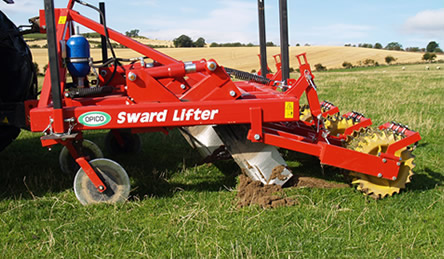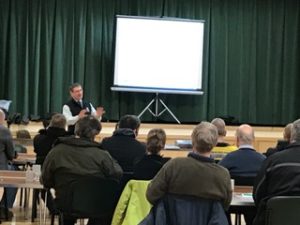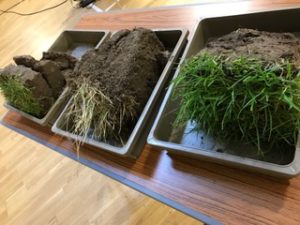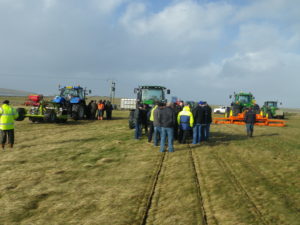Grassland Rejuvenation Day – event summary
14 March 2017The event was attended by 29 farmers.
Talks in the morning by Gavin Elrick on soil structure and Alex Sinclair on soil fertility and fertilisers were well received and prompted much discussion which delayed the remaining talks until after lunch.
Andrew Best from Watson Seeds highlighted the influence of appropriate seed mixtures and suggested appropriate indicators on when it may be appropriate to consider a reseed or rejuvenation of an existing sward. This was followed by Pat Lambert – a large scale organic farmer from Fife – who discussed the importance of soil in his farming system and the influence of clover.
The day finished off by an in-field demonstration of several different pieces of machinery including a pasture slitter, soil aerator, sub-soiler, grass harrow, slot seeder etc.
10 TAKE HOME MESSAGES
- Soils should be analysed when cultivated or once every 4 to 5 years to ascertain soil pH and extractable P and K levels.
- For permanent grassland aim for an optimum pH of 6.0 on mineral soils and 6.2 if arable crops are part of the rotation.
- Potash is the second most important nutrient for grass after nitrogen therefore aim for a soil potash level at the lower end of the SAC moderate status.
- Phosphate helps root development and early growth. Newly seeded grass and clover benefit from applied soluble phosphate as their root systems are insufficiently developed to tap the P reserves in the soil.
- Aim for a P status of 9mg/l for grass/clover swards
- Determine where compaction is evident and match the extent of the damage with an appropriate machine to alleviate the problem.
- Do not attempt to undertake remedial action when the soil is too wet.
- Look for red stem bases in your grass sward as an indicator of desirable rye grasses.
- Where sown grass species drops below 40% consider reseeding
- Sow a good quality seed mixture appropriate to your requirements and the conditions. The cost of the seed is only a small part of the overall expenditure therefore do not compromise on quality.
Sign up to the FAS newsletter
Receive updates on news, events and publications from Scotland’s Farm Advisory Service




